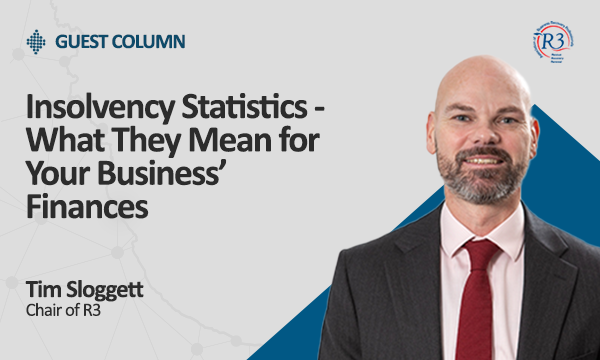Some Known Questions About Insolvency Practitioner.
Some Known Questions About Insolvency Practitioner.
Blog Article
Insolvency Practitioner Fundamentals Explained
Table of ContentsA Biased View of Insolvency PractitionerThe Definitive Guide for Insolvency PractitionerInsolvency Practitioner - An OverviewUnknown Facts About Insolvency PractitionerOur Insolvency Practitioner IdeasThe Best Guide To Insolvency PractitionerUnknown Facts About Insolvency Practitioner
Insolvency is when obligations are above the worth of the company, or when a debtor can not pay the debts they owe. A business can end up being bankrupt because of a number of circumstances that lead to bad cash money flow. When confronted with bankruptcy, an organization or individual can contact creditors directly and restructure financial debts to pay them off.Service proprietors might speak to financial institutions straight and restructure financial obligations into even more convenient installments. Creditors are usually amenable to this method since they desire to be paid off and stay clear of losses, even if the repayment is on a delayed routine.
Insolvency Practitioner Fundamentals Explained
The proprietor produces a proposal detailing exactly how the debt may be reorganized using cost reductions or other plans for assistance. The proposition reveals creditors how the business might create adequate cash money flow for profitable procedures while paying its financial obligations. Commonly, a forgiven debt may be considered revenue by the Irs (IRS).

Insolvency Practitioner Fundamentals Explained
Business may wind up paying large amounts of cash in problems and be unable to continue operations. When procedures stop, so does the firm's income. Lack of income causes unsettled expenses and lenders asking for money owed to them. Some companies become financially troubled because their items or solutions do not develop to fit customers' changing requirements.
Costs go beyond earnings and expenses continue to be overdue. Types of bankruptcy consist of cash-flow bankruptcy and balance-sheet bankruptcy. Cash-flow insolvency takes place when a company has the possessions to cover their debts however they remain in the wrong form, such as genuine estate as opposed to fluid funds. Balance-sheet bankruptcy, on the other hand, indicates a lack of assets in any form to cover financial debts.
The internal revenue service states that an individual is bankrupt when the overall obligations surpass overall properties. A bankruptcy, on the various other hand, is a real court order that illustrates how a bankrupt person or company will certainly repay their financial institutions, or exactly how they will certainly market their properties in order to make the settlements.
The Ultimate Guide To Insolvency Practitioner

Understanding the aspects that can bring about bankruptcy, such as overspending, can aid you avoid insolvency and its effects.
The 3-Minute Rule for Insolvency Practitioner
It is popular that directors and policemans of corporations (and managers of minimal responsibility companies) owe fiduciary obligations to their organizations and their shareholders (or members). These fiduciary responsibilities are defined by state laws and, though there are variants from one state to another, they generally consist of an obligation of loyalty and a task of treatment.
The responsibility of care requires supervisors and policemans to exercise diligence, to make enlightened decisions, and to act in excellent belief to ensure that their actions are in the best rate of interest of the company. Past the range of this discussion, some states enable these tasks to be limited either by so keeping in mind in the business documents or abiding with various other requirements.
Insolvency Practitioner for Beginners
Most states specify bankruptcy in 2 means( 1) when a business's obligations come to be above the sum of its possessions or (2) when the firm becomes not able to pay its financial debts as they end up being dueand embrace both definitions (Insolvency Practitioner). The change in duties takes place because when a firm is bankrupt, there is no value in the company past that owed to the business's lenders so that the equity owners no longer have a financial click here for info risk in the business
Be mindful about offering shareholders preferential treatment at the expenditure of lenders like it (e.g., authorizing and funding a dividend or a stock redemption). Take care regarding preferential treatment between courses of shareholders. Make reasonable initiatives to learn all the truths before taking a details strategy; supervisors ought to genuinely believe that any kind of choices made remain in the most effective interests of the company in its whole (i.e., decisions will be examined in hindsight in light of the effect of such actions on the company).
In any kind of insolvency or bankruptcy case, payments made to particular creditors at the cost of other financial institutions can be clawed back, especially if there is some connection between the business and the financial institution. Take into consideration suggesting at an annual investor conference (or any various other meeting of investors) a resolution verifying that all previous organization decisions and actions taken by the supervisors and police officers of the firm were taken in good faith after an exercise of reasonable care.
The Definitive Guide to Insolvency Practitioner
Totally disclose any type of personal or business partnerships with parties beyond of purchases involving the company to prevent the look of a problem of passion. In assessing possible fund increasing deals or a sale of properties of the struggling company, realize that these purchases might be looked at later on taking into account check out this site any type of succeeding development of supervisors' fiduciary obligations to include lenders.
Report this page